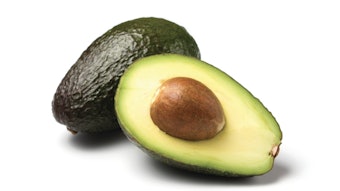
This month we asked industry pros for their input on environmental aggressor protection, treatments and products. We have gathered expert advice from industry professionals on environmental aggressors, and we are bringing these tips to you.
Tip 1: Live Probiotics Repair Skin Barrier
As the skin’s first line of defense, the microbiome helps maintain a balanced and healthy complexion. Environmental factors such as pollution, UV radiation and harsh weather conditions can disrupt this delicate equilibrium, leading to skin issues like inflammation and premature aging. Topical live probiotics, when applied to the skin, work symbiotically with the existing microbiome, strengthening the protective skin barrier against harmful external elements. By promoting a balanced microbial environment, these probiotics enhance the skin’s resilience and ability to combat environmental stressors, ultimately contributing to a more radiant and resilient complexion.
—Emily Stutzman, In-House Esthetician of LaFlore Live Probiotic Skincare
Tip 2: Double Cleanse to Prevent Lasting Damage
February can be a challenging month for skin. Inside, artificially heated environments can cause the skin to lose hydration. Outside, the skin is still privy to sun damage, dehydration, pollution and other aggressive components. Double cleansing several times a week with both a cleanser and an exfoliator can help to prevent lasting damage and allow for the rest of your skin care regimen to work more effectively.
—Arielle Gillespie, Sales Representative of Skyline Beauty Group
Tip 3: Nourish Skin In & Out
Skin environmental stressors and aggressors include, but are not limited to, weather like harsh winters, dry desert heat, sun damage, pollution, proper diet, hydration and toxins like smoking. To combat the free radicals of aging, antioxidants are the skin and body’s defense and play a major role in skin care and habits. L-Ascorbic acid, the most stable and efficacious form of vitamin C, is an excellent choice to consume orally as well as applying topically. UV rays have a significant impact on the skin and it is important to apply a broad-spectrum sunscreen daily. Drink plenty of water and provide proper nutrition both through your diet as well as in your skin care regime. Stay moisturized to keep the skin’s surface smooth, soothed and protected from water loss and irritants by creating a barrier.
—Tag Cedar, Spa Consultant & Industry Expert
Related: The New Environmental Protection Plan
Tip 4: Avoid Scented Products
One critical aspect we simply cannot overlook is the significant impact of scent as an environmental aggressor on our precious skin health. Whether you’re actively involved in performing treatments or managing product retail, recognizing these aggressors is absolutely key. It’s disheartening to know that scented products often hide harmful or even toxic chemicals that can severely compromise the integrity of our skin, potentially leading to adverse reactions in a wide range of clients. By integrating these natural defenses into your offerings, you not only elevate your treatment methods but also place the safety and health of your clients at the forefront.
—Justine Kahn, Founder and CEO of Botnia Skincare
Tip 5: Protect with Antioxidants
Building a strong skin defense is essential for safeguarding the skin from environmental aggressors, keeping it healthy, and looking young. Proper cleansing, topical antioxidants, a healthy diet, staying hydrated, stress management, sleeping well, avoiding smoking and excessive alcohol, pollution protection and using humidifiers boost skin’s natural defenses. In my professional treatments, I love using oxygen with a vitamin mist to maintain the skin’s natural vitality and strengthen its barrier with antioxidant protection to tackle these unrelenting aggressors.
—Jaclyn Peresetsky, Owner and CEO of Skin Perfect Spas, Skin Perfect Academy and Colore Me Perfect Cosmetics & Analysis
Tip 6: Create a Strong Skin Barrier to Eliminate Vulnerability
Our skin is our largest organ and vital for health and wellness! A healthy, functioning barrier should always be the priority as it is essential for keeping bacteria, toxins and environmental stressors out of the body. Remember, the skin is a part of your immune system and if it becomes compromised, you are more vulnerable to a host of health problems.
—Shannon Essau, CEO & National Educator of Allison Clinical Enterprises
Tip 7: SPF is Your Best Friend
Environmental aggressors like pollution, UVA & UVB rays are big contributors to rapid aging, skin cancer, wrinkles and sun spots. Pollutants can be microscopic and sit as a top layer on your skin and hair. Without proper protection, this can directly cause rapid aging and rough skin textures. To protect against these harmful effects, consider incorporating antioxidants such as vitamin C to neutralize free radicals. Additionally, consider using a pollution-fighting moisturizer and avoid prolonged exposure to pollution-heavy areas when possible. To protect against premature aging and skin damage caused by UVA and UVB rays, be sure to use broad spectrum sunscreen with a strength of at least SPF 50+ regularly. Don’t forget that gloomy, overcast days tend to have the strongest UVA and UVB rays, and your tech devices even give off UVB rays, so SPF should be a daily factor.
—Renee Sison, Esthetician and Vagaro Product Marketing Manager
Tip 8: Treat Skin with Healing Ingredients
Some ingredients that aid and heal the skin are vitamin C, ferulic acid and niacinamide. Vitamin C aids in reducing photodamage caused by UV rays, while ferulic acid will calm the skin and reduce the appearance of dark spots. Niacinamide protects the skin against moisture loss throughout the day.
—Dr. Jeannette Graf, Board-Certified Dermatologist and Assistant Clinical Professor of Dermatology at Mt. Sinai School of Medicine











